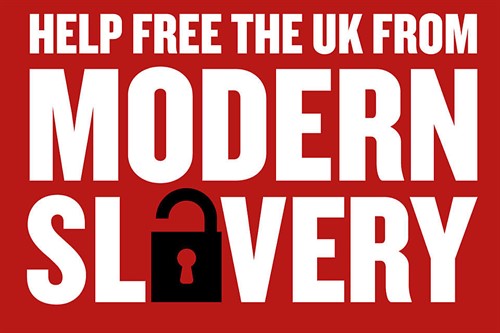
Modern Slavery: What to look out for and
how to get help
Modern slavery is a harmful and hidden crime and its victims may
be especially isolated and hidden from view. However, help and
support is available for victims of modern slavery.
SPOT THE SIGNS OF MODERN SLAVERY
It can be challenging to identify a potential victim of modern
slavery and potential victims may be reluctant or unable to come
forward themselves. That is why it is important for frontline staff
to look out for signs of modern slavery.
A potential victim of modern slavery may:
- Show signs that their movements are being controlled
- Show fear or anxiety
- Allow others to speak for them when addressed
directly
- Look malnourished, unkempt or have untreated
injuries
- Not be in possession of their passports or other travel
documents, as these documents are being held by someone
else
- Not have control of their own money or bank accounts
- Believe they must work against their will
- Be subjected to violence or threats of violence against
themselves or against family members and loved ones
HAVE YOU ENCOUNTERED SOMEONE WHO MAY BE A POTENTIAL
VICTIM OF MODERN SLAVERY?
You don't need to be sure that modern slavery is taking
place or fully understand the types and definitions to report your
concerns. Call the police on 101 if you suspect modern slavery, or
999 if there is an immediate risk of harm.
The Salvation Army's confidential 24/7 referral helpline on
0800 808 3733 will provide advice on getting
support to potential victims.
HELP AND SUPPORT IS AVAILABLE TO VICTIMS
Adults can access a range of support across the UK if they give
their consent to enter the National Referral Mechanism.
Children receive support through Local Authorities. Any
potential child victim must be referred to local children's
services urgently, and a referral made to the National Referral
Mechanism, once the child is safeguarded.